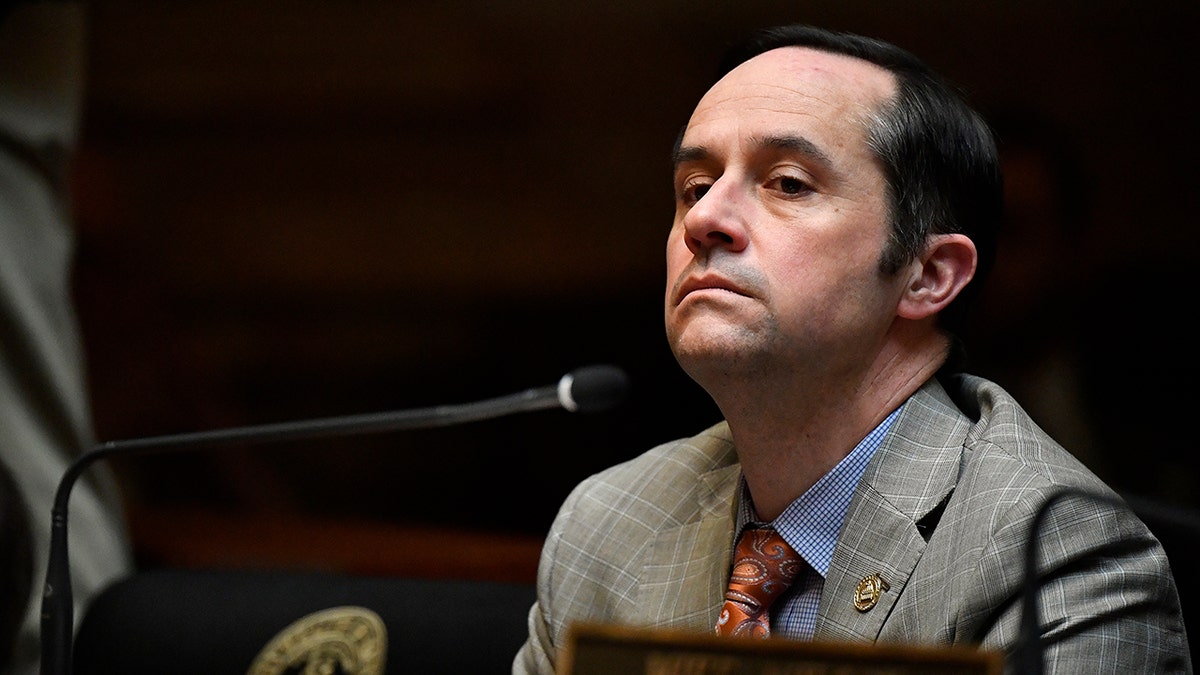Fox News Flash top headlines for March 19
Fox News Flash top headlines are here. Check out what's clicking on Foxnews.com.
Language put in the main budget bill by the Kentucky Senate would set conditions to unlock funding to oversee the state's medical cannabis program, which is scheduled to take effect at the start of 2025.
The two sentences inserted by senators came up for discussion Monday as House and Senate leaders met in public as part of negotiations to hammer out a final version of the state's next two-year budget. Lawmakers went line by line through differences in the voluminous spending plans passed by the House and Senate. Republicans have supermajorities in both chambers.
The Senate's version states that no funds for the Office of Medical Cannabis would become available without peer reviewed, published research showing "conclusive evidence as to the efficacy of medical cannabis for the persistent reduction of symptoms of diseases and conditions."
KENTUCKY HOUSE VOTES TO DECREASE EMERGENCY SAFETY MEASURES IN SMALL COAL MINES
Republican Sen. Chris McDaniel said the provision reflected the view of senators who want to ensure "we have research coming out that’s appropriate to fund" the medical cannabis office.
"While we’re not stripping the funding, we’re waiting on data that tells us that this is effective," said McDaniel, chairman of the Senate Appropriations and Revenue Committee. "And so we’re just putting a quick pause on that to make sure that we have the appropriate information."
The Senate budget included — with the strings attached — about $10.3 million in state general funds over two years, plus about $4.9 million in other funds, to support the office's staffing and operations. The House-passed version included the same funding but without the conditions proposed by the Senate.

Kentucky Republican state Senator Chris McDaniel participates in the Senate session in Frankfort, Ky., Thursday, Feb. 1, 2024. (P Photo/Timothy D. Easley)
Republican Rep. Jason Nemes, a leading supporter of legalizing medical cannabis in Kentucky, said afterward that he intended to make the case to keep the Senate language out of the final version of the spending plan. Nemes and McDaniel are among the budget conferees.
McDaniel said the Senate language shouldn't be seen as an obstacle for implementing the state's medical marijuana program.
"If the advocates for the program have the evidence that they claim to have, this won’t slow anything down," he said in an interview after the conference committee meeting. "It would only slow it down if they can’t prove the things that they have claimed in open committee they can prove."
After years of failed attempts, supporters last year got the bill to legalize and regulate medical marijuana through the legislature, and Democratic Gov. Andy Beshear signed it into law. The measure cleared the Senate despite opposition from some of its most influential members, most notably Senate President Robert Stivers and McDaniel. Stivers is a key member of the budget conference committee.
The measure allows medical cannabis to be prescribed for a list of conditions, including cancer, multiple sclerosis, chronic pain, epilepsy, chronic nausea and post-traumatic stress disorder. Smokable cannabis products would be prohibited. A person would have to be approved for a card allowing its use.
CLICK HERE TO GET THE FOX NEWS APP
Beshear's office didn't offer immediate comment Monday on the proposed Senate conditions. The governor is a leading proponent of legalizing medical cannabis, and last Thursday he announced more progress in setting up the regulatory framework for the program, set to go into effect Jan. 1, 2025.





